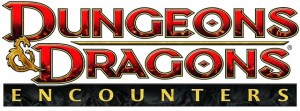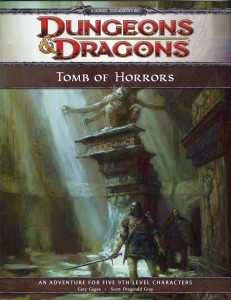While the Dungeon’s Master team enjoys some well-deserved vacation time, we’re breaking out the greatest hits and shining a spotlight on a few of our favourite articles from 2010. We’ve searched for hidden gems that our newer readers might have missed and our long-time readers will enjoy reading again. Enjoy a second look at these greatest hits from Dungeon’s Master.
Ahhhh! The off season. It has been months since I hung up the dice bag and folded up my poster maps, but when the boys at Dungeon’s Master asked me to reflect on my time as a D&D camp councillor I couldn’t resist.
The most important lesson I learned playing D&D with kids was that no matter where you go, people are people. When I started up the Shattered Sea there was a 20 year spread between my oldest and youngest player but I thought nothing of it because I could remember a time when I was still in high school, and I could relate to working 9 to 5 jobs to help provide for someone I cared about. When I got to D&D camp I didn’t know how things were going to go. In talking to my coworkers I was told some of the age old ticks to fill for time and how to prepare quick and dirty campaigns. I needed to run a new story-arc every week and at some point they expected the well to run dry. Instead of doing as suggested, I realized that children have no mercy and if I was going to make it through each day I really had to run my best stuff.
What ended up happening was that the kids at my table went through the same growing pains of picking up my style of DMing and each kid’s playing style that my own adult players did. I encountered the same gamut of interests I found at home. There were kids who where there to just have fun, there were kids who knew the rules inside out on day one, as well as kids who wanted to kill the big bad guy just like in every movie they have ever seen. As I spun my tales at the table the kids of course would never pick up on the sources I was pulling from simply because they had spent fewer years on this earth than I had. At the end of the day I couldn’t get away with bad writing at camp anymore than I could at my home game. I saw the same social problems in my campers that I had seen in people of all ages all my life. I will admit that they kids did have an extraordinary penchant for cheating, something I won’t try to account for.
Bring your A-Ggme DMs, no mater what game you run and no matter who it’s for because every time you roll dice it’s a chance to improve your self as a DM. Moreover it’s a chance for you to better understand the people around you, because at the end of the day, people are people no matter where you go. As you read the account try to place the players at your own table in the seats that my campers took at mine. I think you wont find the exercise too much of a stretch. R.I.P. Stealth Phoenix, I’ll never forget you.


